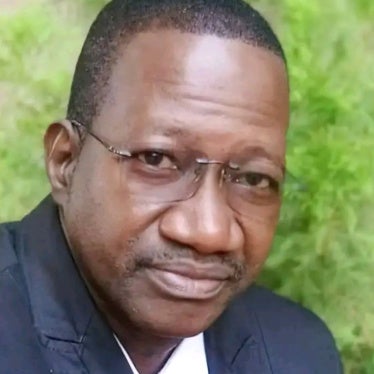Ethiopian security forces have used excessive force in dealing with student protests and are using the protests as an excuse for cracking down on all government critics.
The government's heavy-handed tactics have enflamed what began as a peaceful local student protest into a violent national crisis," said Saman Zia-Zarifi, Human Rights Watch's Academic Freedom Director. "The attacks on academic freedom have now degenerated into a wholesale assault on civil society in Ethiopia."
On the morning of May 8, armed security forces arrested Prof. Mesfin Woldemariam and Berhanu Nega, both prominent academics and human rights activists. Prof. Mesfin, who was fired from his teaching position in 1991, was a founder of the Ethiopian Human Rights Council, a monitoring organization. His detention follows that of several dozen members of civil and political groups critical of the Ethiopian government. Authorities claim these opposition figures instigated the recent student protests.
However, eyewitness testimony and information from local sources indicate that Ethiopian authorities responded with brutal violence to students demanding greater academic freedom, and are now using the ensuing crisis to justify a general crackdown on figures critical of the government.
Security forces attacked students at Addis Ababa University on April 11, injuring more than fifty students. A week later, at least forty people were killed during raids at the university by heavily armed members of the Special Forces branch of the security forces. Eyewitnesses claim that the police raid on students escalated into widespread riots around Addis Ababa as protesters disaffected with government policies joined the clashes in support of the students.
According to eyewitnesses, security forces fired live ammunition at protesters. Police reports stated that thirty-one people were killed in the raids, while hospital
sources put the number of dead as at least forty-one. Some fifty-five people were hospitalized as a result of injuries sustained during the clashes. Witnesses state that the riot police beat civilians with batons though they offered no resistance, and then turned on bystanders, including women and children. Students were dragged out of local churches and mosques, where they had sought refuge, and taken into detention.
More than two thousand students were detained during these raids. Most were released a few days later, but several who were suspected of being members of the university student council are still held incommunicado. The security forces have also rounded up nearly 150 political activists and journalists critical of the government, many of whom are being held without any information as to their whereabouts.
According to the testimony of newly released student detainees, they were taken to the Sendafa police training college outside Addis Ababa, where they received only bread and water once a day. Students were disciplined by being forced to run barefoot on stony ground, and were denied medical care or access to their families and lawyers. As a condition of release and readmission to the university, students said they were forced to sign a form admitting that they had participated in an illegal action and were responsible for the violence.
Police again raided the Addis Ababa University campus on April 30, arresting several students suspected of playing leadership roles in the protests. Despite the police action, and contrary to the government's public statements, Addis Ababa University remains under a student boycott in support of the detained students. The unrest has spread to at least ten other universities and scores of high schools around the country, including Alemaya University of Agriculture and Bahir-Dar Polytechnic Institute.
Academics interviewed by telephone by Human Rights Watch claim that security forces are blocking students at Addis Ababa from traveling to their home towns outside of the capital in order to prevent contact between protesters and sympathetic student groups around the country.
Background
At the root of the student protests are demands for greater academic freedom. Student groups at Addis Ababa University were engaged in ongoing negotiations with Minister of Education Genet Zewde over requests for decreased government controls over the campus. The students' main demands were permission to republish a banned student magazine, dismissal of two university administrators closely affiliated with the government, and removal of security troops stationed inside the campus.
While the government initially conceded the first two demands, it did not commit to a schedule for removing security forces from the universities. When students continued to press their demands, the minister of education issued an ultimatum threatening students who did not return to classes with police force. The security forces' efforts to enforce the ultimatum, coming on the heels of continuing police use of violence to quash student protests, set off the clashes on April 17 and 18 at Addis Ababa University and the chain of events leading to the current crisis.
The Human Rights Watch Academic Freedom program works with a committee prominent academic leaders and scholars, including the current and past presidents of Harvard University, Columbia University and more than a dozen other universities in the United States, as well as internationally prominent academics. Human Rights Watch urged the Ethiopian government to promptly investigate the conduct of security forces in causing the deaths during raids at Addis Ababa University; to release all students, government critics and human rights monitors still in detention, or promptly allow them the opportunity to defend themselves against formal charges in a proper court of law; and to honor academic freedom by allowing free expression at the universities.







